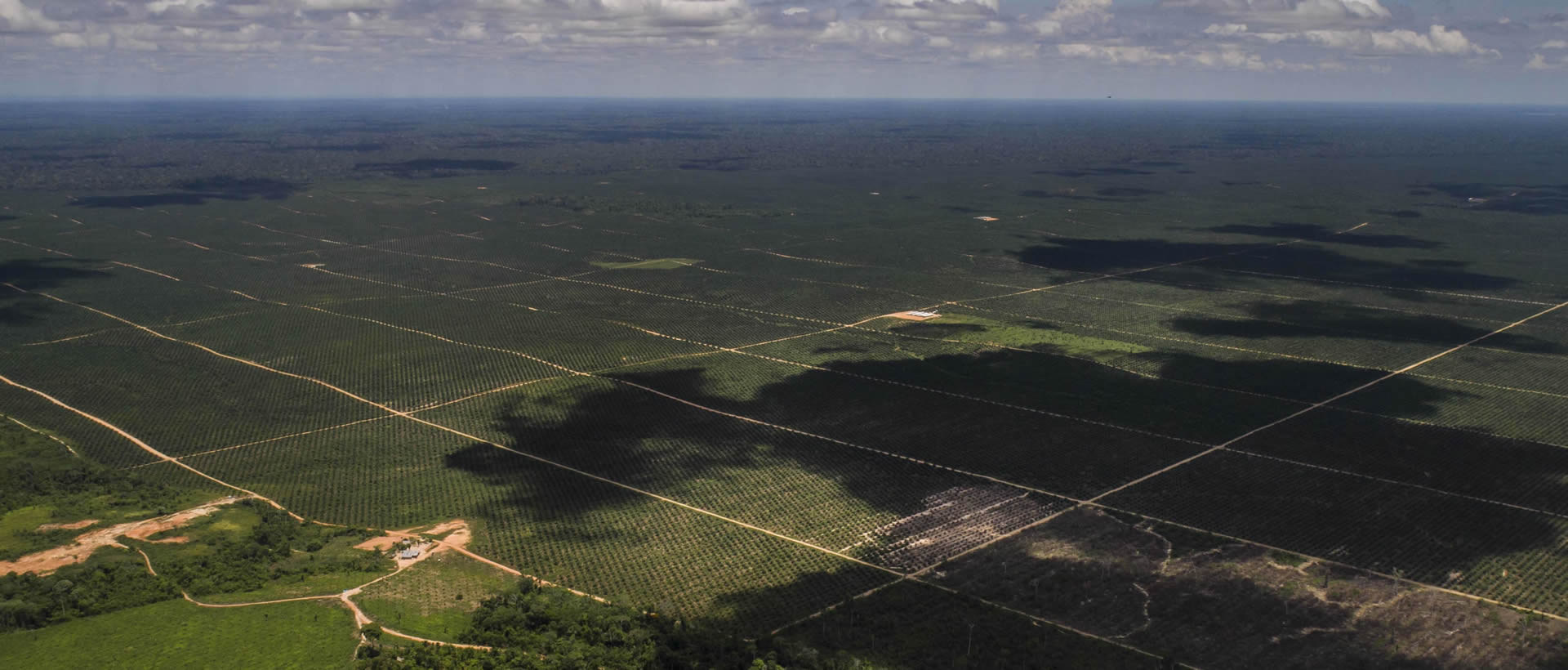
“Do you know what plant people consume the most?” Industrial engineer Rubén Meléndez Rossel asks this with the air of a teacher who believes he always has the right answer. He opens his eyes wide and raises his eyebrows: “Palm. Palm oil is in 50% of all the food products we consume, in products you would never imagine and that you eat every day.” Breads, cookies, yogurt, cereals. Meléndez Rossel is the general director of Oleaginosas Amazónicas (Olamsa), the company that manages the largest palm oil extraction plant in Ucayali, the region with the greatest growth of oil palm plantations in Peru. Meléndez promotes the prediction that production growth for this crop will be “tremendous” and that it is on the way to becoming the flagship crop of the Peruvian Amazon.
That is still an optimistic forecast: less than 40% of the fats and oils consumed in Peru come from national palm oil production. The rest is mainly soy oil produced by other countries, such as Argentina. “If you buy soy oil from other countries you’re giving work to people in other places. There is capital flight and that doesn’t do us any good, wouldn’t you agree?” the engineer asks, while the smell of rotten fruit pervades Olamsa’s oldest oil extraction plant. The plant is located at mile point 59.8 on the Federico Basadre road, in the Neshuya area. It operates just one hour away from Pucallpa, the capital of Ucayali.
It’s 5:42 in the afternoon on 17 April, 2018. The nauseating smell is more intense. It causes retching. In the back of the plant, some pits that look like swimming pools covered with plastic contain microorganisms that devour the palm residues that the plant generates during the oil production process. The pits are used to purify the water used in the process. Engineer Meléndez Rossel assures us that at the end of the pit circuit the treated water will be clean enough to use for raising large, healthy paiches (fish). And that another part of the process will serve to generate electric power that they will be able to sell to make Olamsa’s business sustainable.
Palm production in Peru was promoted by successive governments as a replacement for coca leaves, to combat drug trafficking. Entrepreneurs in the sector say that it does not hurt the environment because it is grown in areas abandoned by migrant farmers and on grazing lands. But there is a case of massive deforestation in the Peruvian Amazon due to large-scale palm oil production that has become the black mark overshadowing the industry’s business: the illegal operations of the companies founded by Czech-American entrepreneur Dennis Melka, accused of deforesting more than 13,000 hectares of forest in Ucayali and Loreto, in addition to seizing farmers’ lands.

With no authorization and by taking advantage of loopholes in Peruvian laws, Melka and his intermediaries bought lands in the Loreto and Ucayali regions, with the complicity of civil servants in the regional governments who are now under investigation for corruption. Melka is known for his skill in setting up very profitable plantations in countries with lax regulations, such as Malaysia, the world’s second producer of palm oil. In Peru, this businessman began operations in 2010 with the creation of a network of companies, three of which destroyed forests to plant palm in Ucayali and cacao in Loreto. Due to the investigations into Melka’s activities and those of his associates in the Public Ministry, two of the companies were liquidated in 2016 as a business strategy. However, the plantations resulting from the deforestation remained intact in the hands of other operators: Ocho Sur P. in Tibecocha and Ocho Sur U. in Bajo Rayal. The public prosecutors have succeeded in stopping the deforestation, but not the harvest of the fruit that has grown on the lands where the forest was razed. A Convoca.pe team has verified that trucks loaded with this product leave from these two areas in the Nueva Requena district every day.
On 17 April, a yellow truck with license plate number C3B-978 left before 3 p.m. from the Tibecocha farm in Ucayali where the Ocho Sur P. S.A.C. plantations are found; this company inherited the crops from Plantaciones de Pucallpa, a company founded by Melka. The truck carried a load of 10 tons to a raft for crossing the Aguaytía River. It continued at 30 kilometers per hour on the stretch of road that crosses Nueva Requena, until arriving three hours later at mileage point 36.8 on the Federico Basadre road, Campo Verde. There, at about 6 p.m., a wooden door was opened. The truck drove slowly in at last light of day. It was one of the Olamsa palm oil extraction plants, where in just a few hours the palm fruit would enter the processing mill to be converted into crude oil, which is then taken to Lima to be refined and sold on the food market.
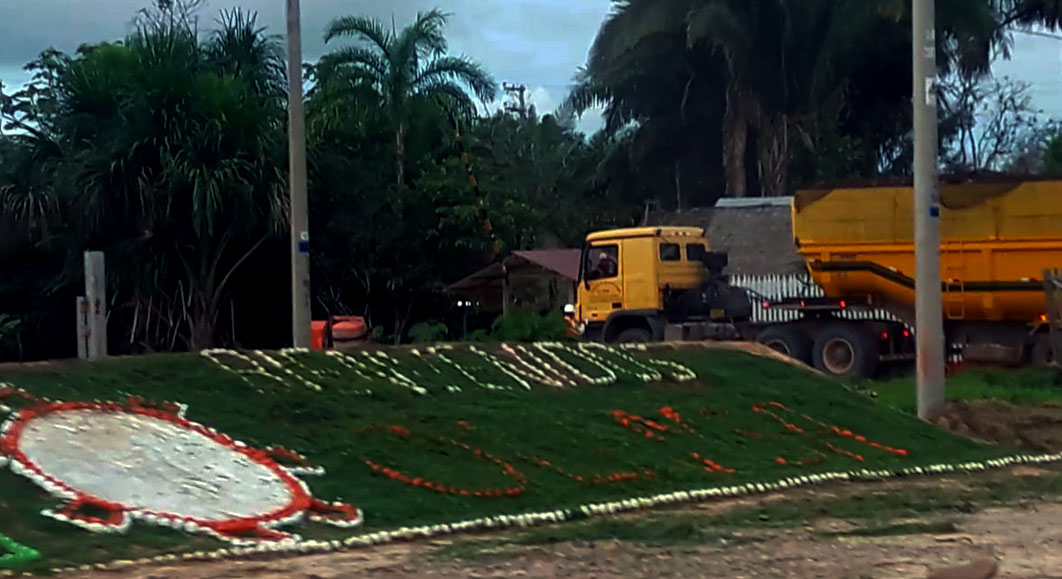
Meanwhile, Meléndez continues to talk about palm in the other Olamsa extraction plant. “There are three ‘legs’ to make a palm company successful: it must be environmentally friendly, socially acceptable and economically profitable. We are succeeding”, he says. According to him, his company only purchases from small oil palm farmers who come with vanloads of fruit weighing barely one ton. Today we know this is not true.
A few days later, we saw him again in Lima, at the National Palm Producers Congress. “Do you buy palm fruit from the Melka company?” we asked Meléndez. “We don’t know who they sell to. I understand that their plantations are just growing now”, he answered. According to Meléndez Rossel, Olamsa has 700 small oil palm farmers as partners who supply 50 percent of the fruits they process in the two oil extraction plants in Ucayali. The rest, he assures us, come from other small, unassociated producers with 3-5 hectares of land. The Melka group companies’ harvest is camouflaged in this category. Olamsa is a company that says it is environmentally friendly while it does business with a company accused of massive deforestation. And it is not the only one.



The Oleaginosas del Perú (Olpesa) oil extraction plant does it too. It is the largest plant in the Tocache district, in San Martín, and is able to process 30 tons of fruit every day. “Do you buy fruit from the Melka group?” we asked Jorge Luis Cobos, the company plant manager. In the midst of the hubbub of the National Palm Producers Congress, Cobos’ response was firm: “No”. Five days later, on Wednesday, 9 May, we had evidence that he was lying. A truck with license plate number ADZ 972 left the plantations of the Ocho Sur P. S.A.C company in Tibecocha, Ucayali, which is linked to Melka. It left with 30 tons of fruit and arrived 48 hours later in Tocache after two nights of rest in the roadside darkness. Convoca.pe followed it and photographed this journey.
It was a typical trip for the geography in that region. The truck followed the same exit route: It crossed the Aguaytía River by raft and then it travelled the Nueva Requena section rocking from one side to the other until it reached the stability of the paved Federico Basadre road. It advanced slowly along this road, which for many years was lined with farms engaged in coca leaf growing and illegal logging. The truck went through the cities of Ucayali, Huánuco and San Martín until reaching the town of Villapalma, in Tocache, on Friday morning, to the odor of rotten fruit that came from the Olpesa extraction plant. A trip from Tibecocha to Villapalma can take close to 18 hours for a truck with a heavy load, stops included. But this truck took twice that long: the driver stopped several times to patch one of the vehicle’s rear tires.
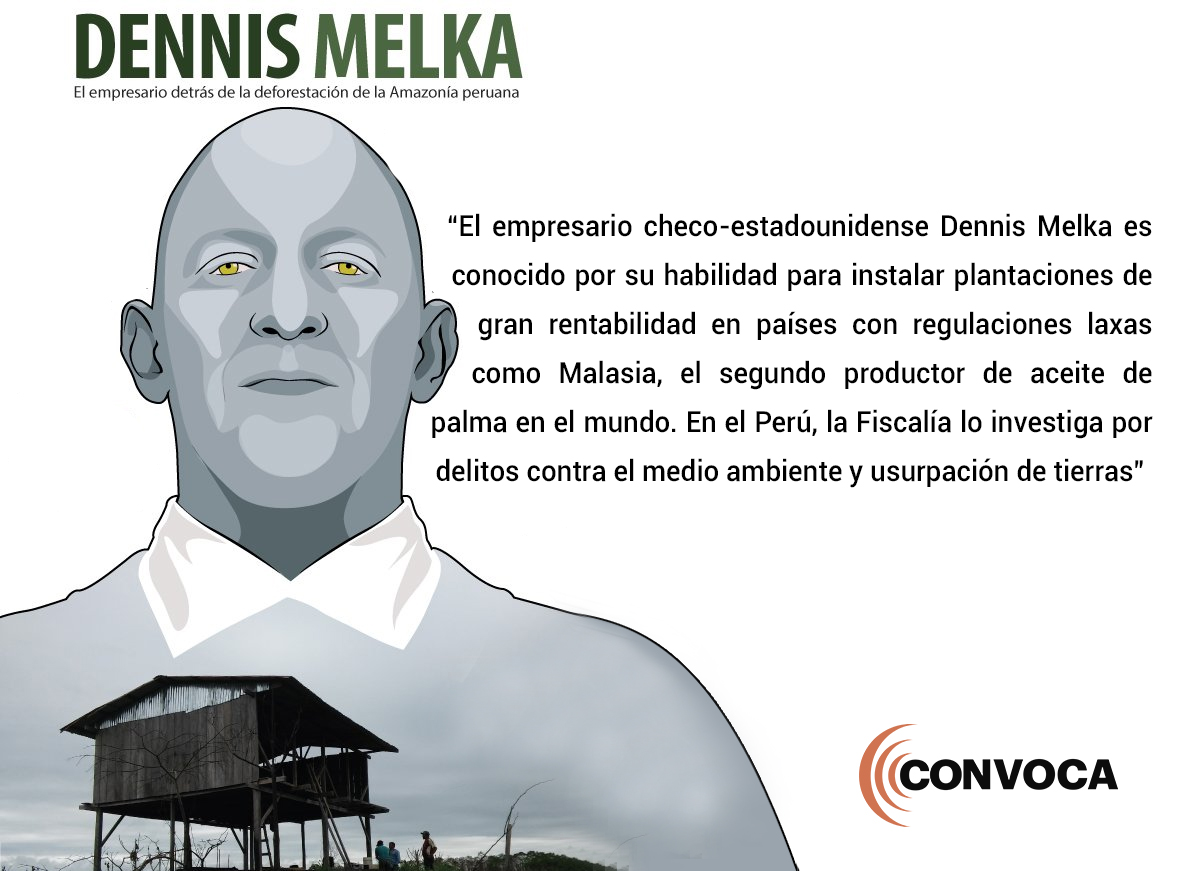
The loads of oil palm fruit originating in the Melka group’s deforested areas have intensified since the end of last year, according to the inhabitants of Nueva Requena who see the trucks go by from their homes, statements from the drivers who transport the fruit and the workers who harvest the palm. The authorities investigating the case in the Special Prosecutor’s Office for Organized Crime (the Fiscalía contra el Crimen Organizado) in Lima have not been able to stop the constant flow of trucks loaded with the fruits of the deforestation that enter the legal circuit through the extraction plants. The public prosecutors are only pursuing the crime against the environment, not what happens afterwards, when the deed is done. There are no controls to trace the palm’s route.
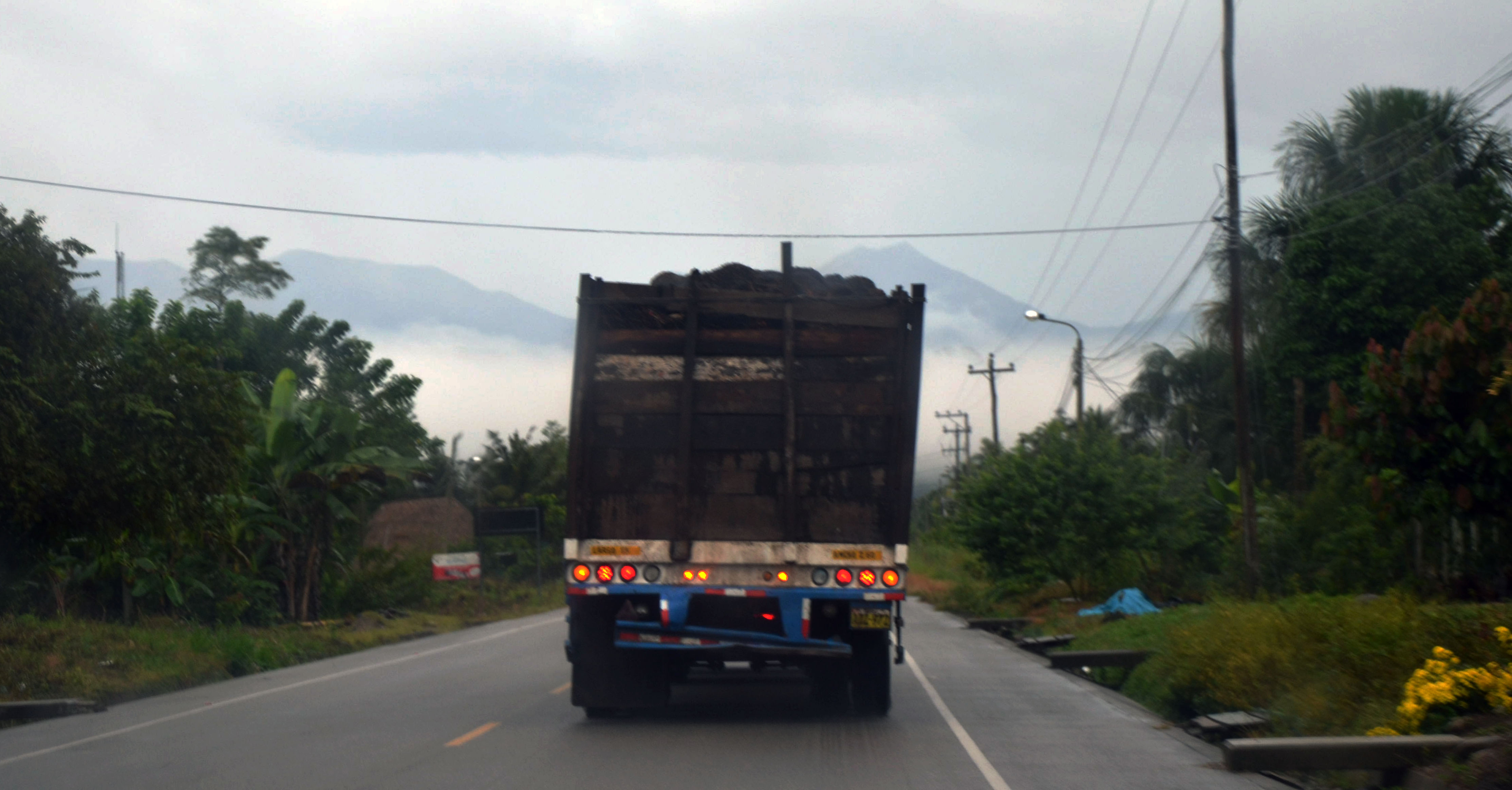
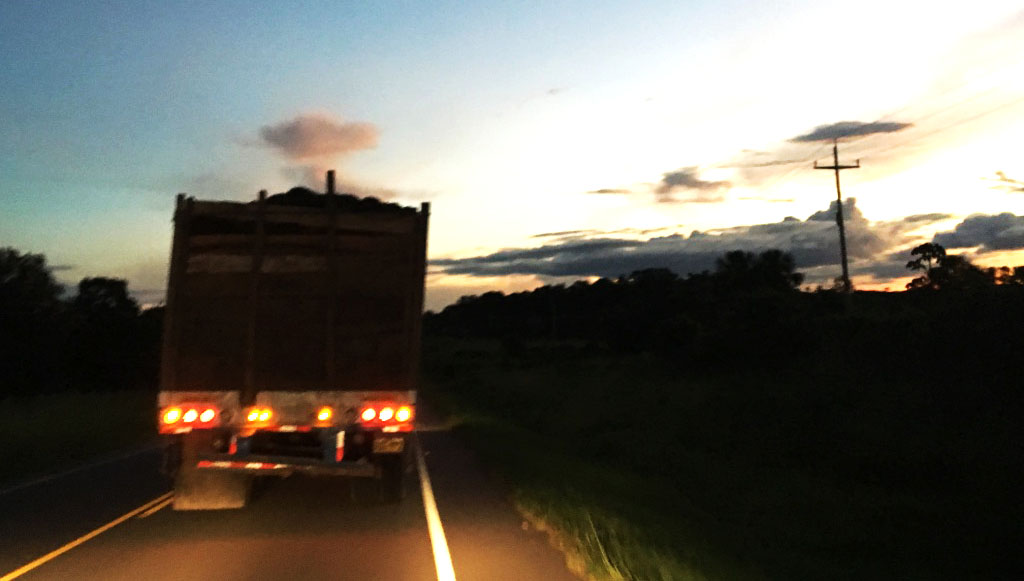
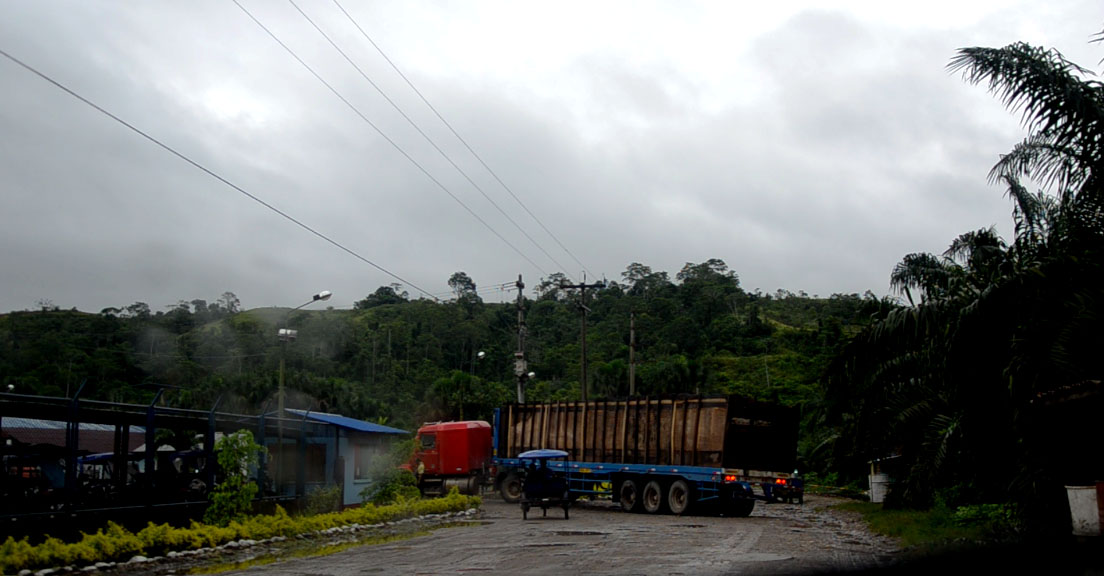
The trucks heading to Tocache leave once a month on average, due to the long journey, according to the drivers who wait with their trucks in front of the police station in Nueva Requena to be called by the company to go into the plantations. But the “local” trucks that transport fruits to the extraction plants located along the Federico Basadre road are working every day when the sun is high in the sky and the rain doesn’t spoil the trail. The loads leave the two plantations belonging to the Melka group companies in Ucayali: from Tibecocha, where Ocho Sur P. operates, and from Bajo Rayal where Ocho Sur U. has its operations. It’s not easy to trace. Even the company names seem designed to cause confusion and prevent us from remembering them.
On 17 April, we recorded the journey of two trucks from the two plantations that were heading for the Industrias Palm Óleo S.A.C. extraction plant, belonging to Jorge Jaime Lau Yook. Even though it only processes 4 tons of oil palm fruit per hour, this company obtained millions in capital increase in just four years: from 10,000 soles in 2010 to almost 4 million soles in 2014. The Industrias Palm Óleo S.A.C. plant, ironically, is located next to the Pucallpa jail, at mile point 12 on the Federico Basadre road. In this story, the legal and the illegal follow the same route.
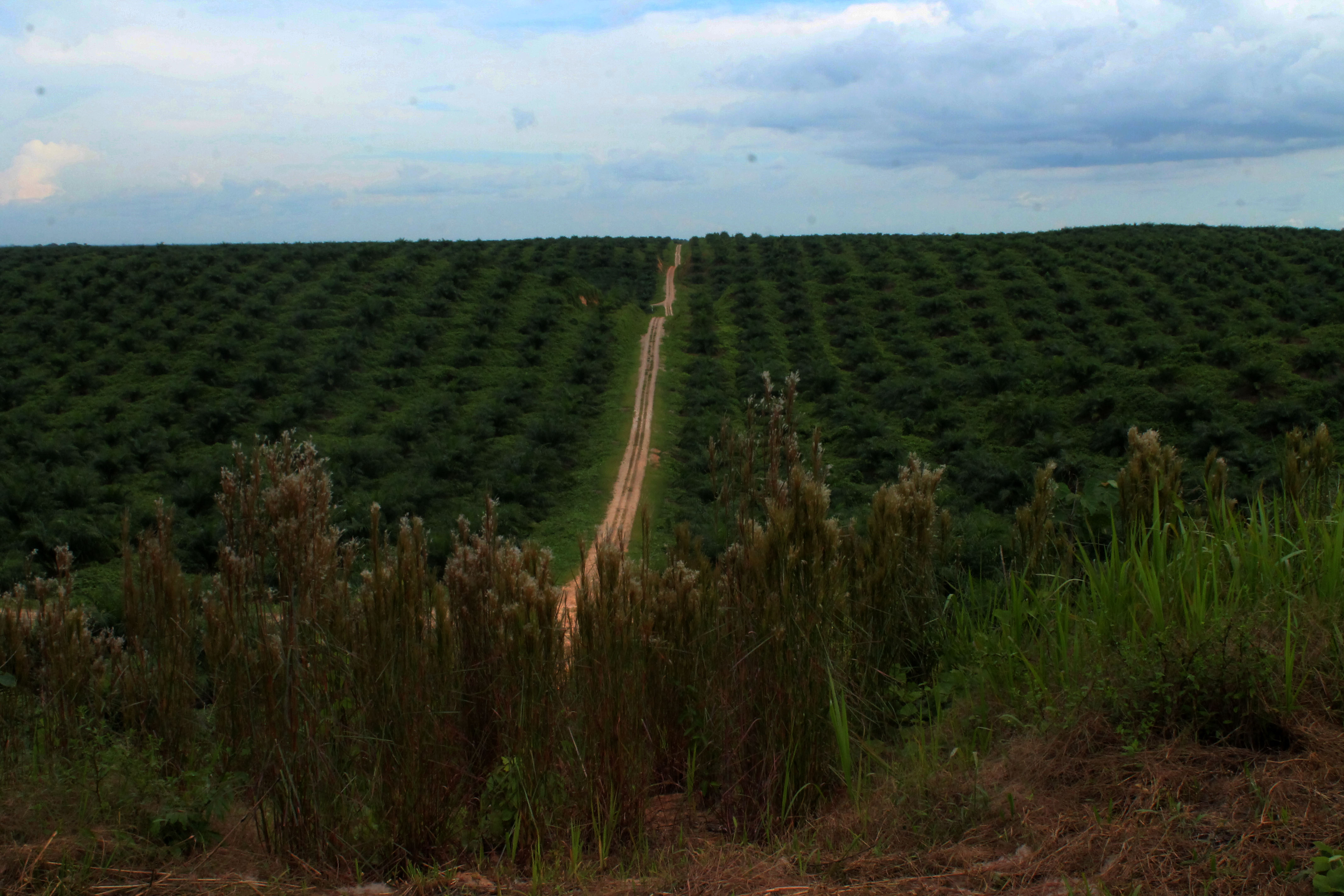
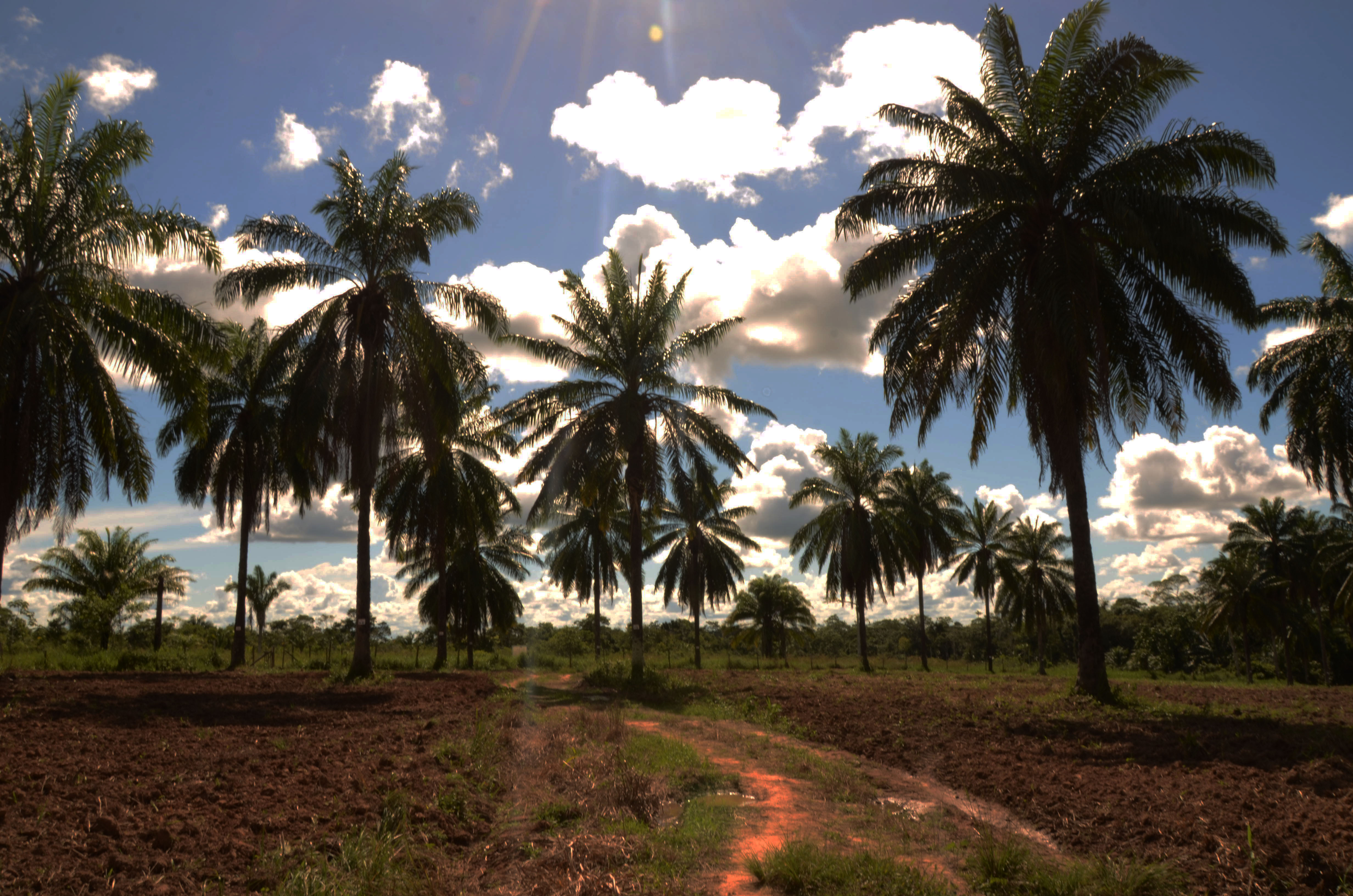
The Olamsa and Olpesa companies, which also purchase the fruit from the Melka group companies, are members of the so-called Roundtable on Sustainable Palm Oil (RSPO), which certifies the companies as being environmentally friendly. Francisco Naranjo, representative of the RSPO for Latin America, assured Convoca.pe that Olamsa and Olpesa have not been audited yet to verify whether they meet the organization’s standards. It is clear that in reality these companies are doing just the opposite: buying oil palm fruit planted in the forest that was pillaged by the Melka group.
This story will be continued.